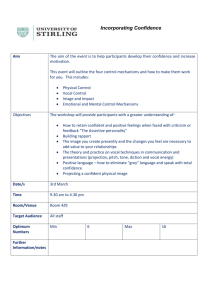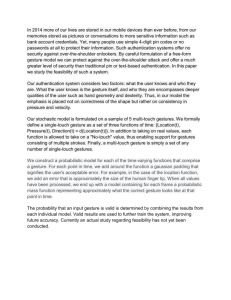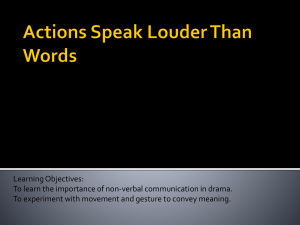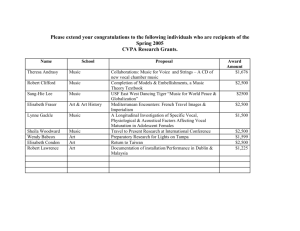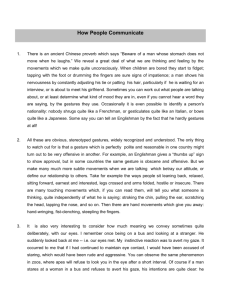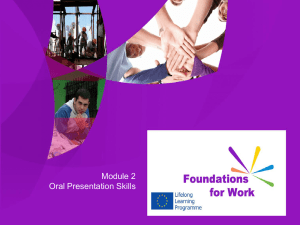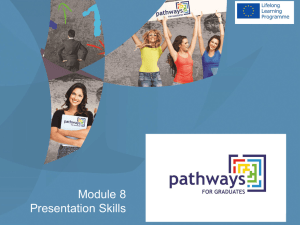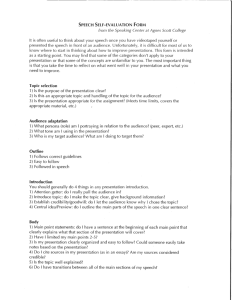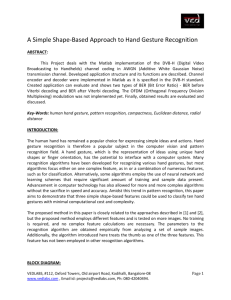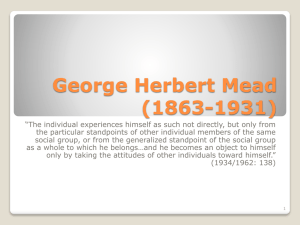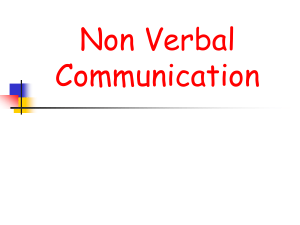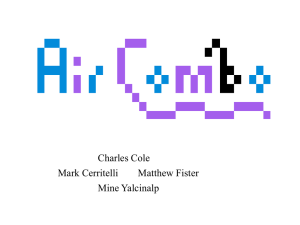Getting acquainted with Mead (2005)
advertisement
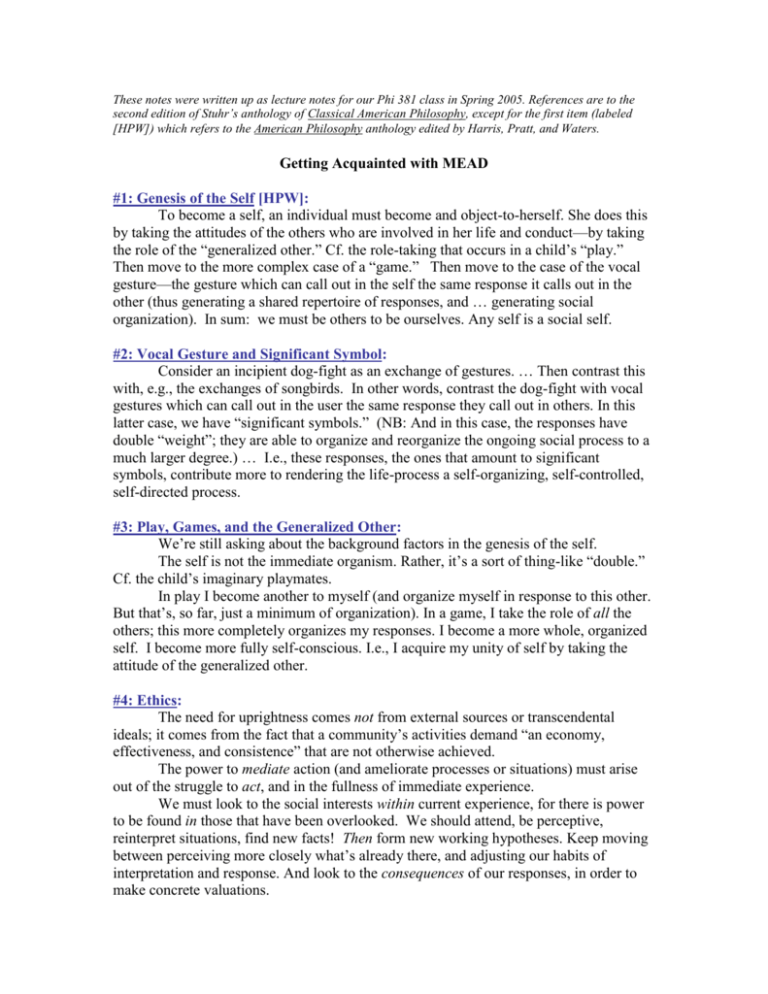
These notes were written up as lecture notes for our Phi 381 class in Spring 2005. References are to the second edition of Stuhr’s anthology of Classical American Philosophy, except for the first item (labeled [HPW]) which refers to the American Philosophy anthology edited by Harris, Pratt, and Waters. Getting Acquainted with MEAD #1: Genesis of the Self [HPW]: To become a self, an individual must become and object-to-herself. She does this by taking the attitudes of the others who are involved in her life and conduct—by taking the role of the “generalized other.” Cf. the role-taking that occurs in a child’s “play.” Then move to the more complex case of a “game.” Then move to the case of the vocal gesture—the gesture which can call out in the self the same response it calls out in the other (thus generating a shared repertoire of responses, and … generating social organization). In sum: we must be others to be ourselves. Any self is a social self. #2: Vocal Gesture and Significant Symbol: Consider an incipient dog-fight as an exchange of gestures. … Then contrast this with, e.g., the exchanges of songbirds. In other words, contrast the dog-fight with vocal gestures which can call out in the user the same response they call out in others. In this latter case, we have “significant symbols.” (NB: And in this case, the responses have double “weight”; they are able to organize and reorganize the ongoing social process to a much larger degree.) … I.e., these responses, the ones that amount to significant symbols, contribute more to rendering the life-process a self-organizing, self-controlled, self-directed process. #3: Play, Games, and the Generalized Other: We’re still asking about the background factors in the genesis of the self. The self is not the immediate organism. Rather, it’s a sort of thing-like “double.” Cf. the child’s imaginary playmates. In play I become another to myself (and organize myself in response to this other. But that’s, so far, just a minimum of organization). In a game, I take the role of all the others; this more completely organizes my responses. I become a more whole, organized self. I become more fully self-conscious. I.e., I acquire my unity of self by taking the attitude of the generalized other. #4: Ethics: The need for uprightness comes not from external sources or transcendental ideals; it comes from the fact that a community’s activities demand “an economy, effectiveness, and consistence” that are not otherwise achieved. The power to mediate action (and ameliorate processes or situations) must arise out of the struggle to act, and in the fullness of immediate experience. We must look to the social interests within current experience, for there is power to be found in those that have been overlooked. We should attend, be perceptive, reinterpret situations, find new facts! Then form new working hypotheses. Keep moving between perceiving more closely what’s already there, and adjusting our habits of interpretation and response. And look to the consequences of our responses, in order to make concrete valuations.
